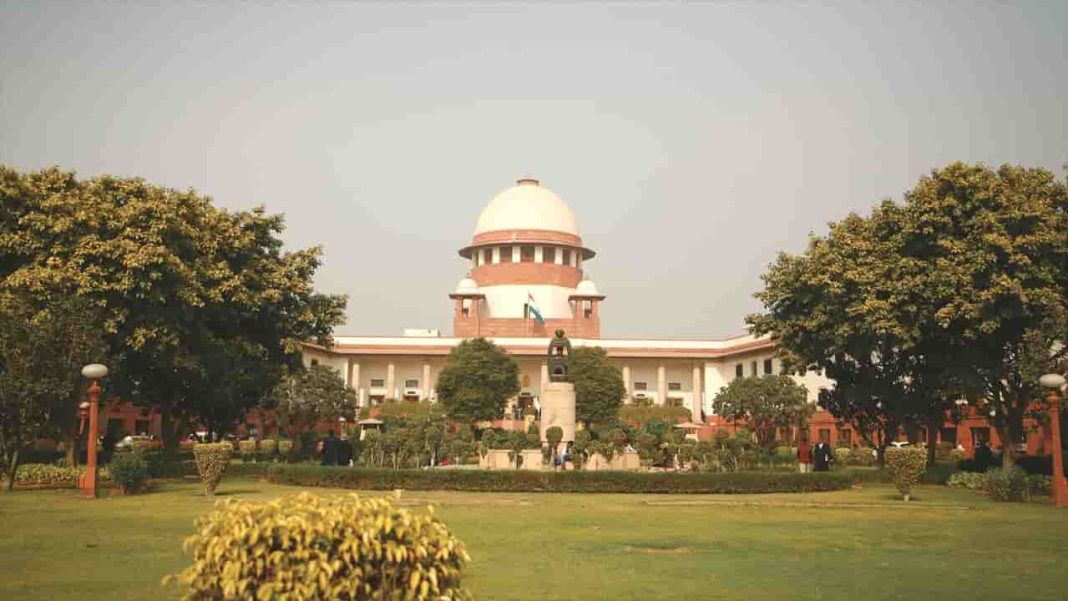Calling the recent incidents of gun firing within the court premises in Delhi as appaling, which disturbed it to no end, the Supreme Court has issued a set of directions to be followed in the premises, in order to ‘preserve’ the sanctity of the court.
Noting that the safety and security of stakeholders in the judicial process was ‘non-negotiable,’ the Division Bench of Justice S Ravindra Bhat and Justice Dipankar Datta stressed on preserving the sanctity of a court as a space where justice was administered and the rule of law was upheld.
It further suggested the judicial institutions to take comprehensive steps for safeguarding the well-being of all its stakeholders.
The Division Bench noted that such incidents in the court premises were deeply concerning and posed significant risks to the safety of not only judges but lawyers, court staff, litigants and the general public.
It observed that the hope for the litigants who visit the temples of justice would dwindle, if the very halls of justice lacked the shield of security.
The Supreme Court suggested the following measures for addressing the issue of security:
a) There ought to be a security plan in place, in line with the recommendations herein, to be prepared by the High Courts in consultation with the Principal Secretaries, Home Departments of each State Government and the Director Generals of Police of the States/Union Territories or the Commissioners of Police wherever a court complex is within the jurisdiction of a Police Commissionerate, as the case may be, which should be timely implemented at the state & district levels covering District Headquarters and other courts in outlying areas as well.
b) The security plan may include proposal for setting up of permanent Court Security Unit(s) in each complex, indicating the strength and source of drawing of manpower including armed/unarmed personnel and supervisory officer(s) for each such unit, the minimum term and mode of deployment of such manpower, list of duties and additional financial benefits for such manpower, as may be offered to secure their willingness to serve in such Units, special modules for training and sensitising such manpower in matters of Court security, and miscellaneous matters related to such Units;
c) The schematics of CCTV camera installation will have to be laid down on a district-wise basis where the respective State Governments should provide the requisite funds for the execution of such a plan in a timely manner.
d) In newly constructed court complexes, there appears to be a lack of consistency regarding the installation of CCTV cameras, whether it should be done before or after inauguration. We emphasise that the installation of CCTV cameras should be an integral part of the construction project of courts, and therefore should be prioritised.
e) To address concerns regarding data and privacy, as rightly highlighted by Mr Luthra, the High Courts may take appropriate measures or draft necessary guidelines in this regard.
f) Further, upon the finalisation of the security plan, the High Courts may entrust the responsibility of installation and maintenance of the CCTV cameras with the concerned District and Sessions Judges for a more realistic analysis of local requirements.
g) Keeping in mind the lax security measures at entry-exit points within several court complexes, we deem it necessary to recommend that these points may be secured by constant monitoring with the help of adequate security equipment.
In this regard, the courts may consider putting in place security measures such as deployment of adequate police personnel, security stickers for vehicles, frisking, metal detectors, baggage scanners, court-specific entry passes, and biometric devices to enhance overall security. Other security measures may include regulating the use of court premises as thoroughfares, if necessary, even by way of total prohibition.
h) There have been various concerns regarding the operation of various shops and vendors within court premises which may result in potential security lapses. In this regard, the relevant authorities may keep a strict check on the relevant permissions required for their continued operations.
i) It may be ensured that emergency measures like ambulances, medical facilities and firefighting services are immediately available and modernised within court complexes and unimpeded access of such vehicles to the premises is assured at all times. This includes ensuring unhindered movement and keeping the court complex vicinity free from traffic and parking congestion.
The Supreme Court also suggested the following measures for digitisation of Judicial Infrastructure:
a) This Court has, on multiple occasions, stressed the need for digitisation of judicial infrastructure, particularly at district levels. We have been apprised that at present, there are many courts which lack facilities to live stream court proceedings as well as facilities to record trials. We desire that these issues are looked into, in the right earnest, by the High Courts.
b) With a futuristic vision, we need to progress with implementing fresh and innovative ideas so that the possibility of any untoward incident in any court premises is avoided. Initiatives like Audiovisual (AV) technology/video-conferencing (VC) facility for recording of evidence and testimonies in trial, live-streaming of court proceedings at all levels, establishing e-SEWA Kendras, particularly in remote areas may also be considered accordingly.
The Apex Court entrusted the Chief Justices of the High Courts to decide on whether to assign the responsibility of addressing safety and security concerns within court complexes to either the State Court Management Systems Committee or a specially formed committee comprising individuals from various sectors (such as judges/judicial officers, civil and police administration, municipal corporations/municipalities, members of the bar, registry staff, etc.), for the said purpose.
The Supreme Court also directed the High Courts to ensure the regular submission of monthly reports to the Chief Justice, detailing the status of security measures taken, for timely corrective actions to be taken.The matter has been posted to 12th October for further consideration.
(Case title: Pradyuman Bisht vs Union of India)


